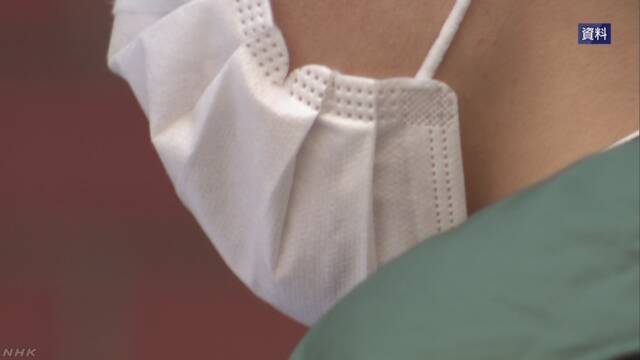Nearly 20% of nursing care offices have out of stock masks Career union survey March 3:15:42
The union survey found that nearly 20% of nursing homes had no stock of masks due to the spread of the new coronavirus infection.
The Japan Care Craft Union, a union made by nursing professionals, surveyed the effects of the new coronavirus on nursing care offices nationwide from 28th of January to 1st of this month, and received responses from 1117 offices.
According to the survey, 34.1% of the respondents said that they did not have any hygiene products such as masks and alcohol disinfectants, of which 45.8% of visiting care, which had many small establishments, accounted for nearly half. I understand.
When asked how many days they had stock of their masks, 18.8% of businesses said they had no stock.
In home-visit care, it is 27.8%.
The Ministry of Health, Labor and Welfare and the Cabinet Office have asked prefectures to investigate the lack of masks in nursing care facilities, but 68.1% of business facilities responded that they had not yet been surveyed.
According to the survey conducted by the Japan Care Craft Union, "At the nursing care site, there is a serious lack of sanitary supplies, such as the lack of masks, which makes it even more difficult to prevent daily infections. There is no current situation, and I want the government to respond in a fine-tuned manner so that it can be improved as soon as possible. "
Nursing facility "even if it is said to take measures"
Nursing homes for elderly people who are more likely to become ill when infected with the new coronavirus.
The government has demanded thorough measures against infection, but there has been some confusion from facilities regarding how to respond if necessary supplies are not available.
It is said that masks became unavailable from around mid-January at a special-care home for the elderly in Yachimata City, Chiba Prefecture.
Every year, we have a large stockpile of masks for the first four months from December in case of influenza, but still only about two boxes of cardboard remain.
For this reason, it is said that the mask, which had been changed twice a day for each staff member, is being used without changing for one day.
However, if the situation continues to be unavailable as it is, a sense of danger will be raised if it will bottom out in the next month or so.
In addition, alcohol disinfectants, which are indispensable for sanitizing, continue to be unavailable.
The government requires that you wear masks and thoroughly disinfect alcohol, but if you have a shortage of hygiene products, you are still wondering what to do.
Kaori Murai, the director of the facility, said, "Our mask is the most difficult to obtain and I would like to see the prospect when it will be available. The country says that we will increase the number of masks, but the situation remains the same. We are considering whether to make it with a cloth if it hits the bottom. "
Anxiety has also been raised by residents of the facility.
Tsunane Takaba (91) has prepared an alcoholic disinfectant in his room to prevent the disease, but says he always feels the risk of not knowing when to get infected.
Takaha said, "I can't beat my illness, so I keep myself in my room so I don't go out too much."
The institution believes that it should consider what to do if an infected person does emerge, but says that no specific response has been provided by the government and that no plans can be made yet.
Murai facility length not see the prospect of "termination, really honest I think is that how are you good if we. Because the site will be involved the lives of the elderly, to secure and concrete measures of the necessary goods to the country I'd like you to show it. "
Expert "Confusion by throwing at the site"
According to Yasuhiro Yuki, a professor at Shukutoku University, which specializes in nursing care, "Countermeasures are lacking in concrete measures to implement, so to speak, the situation is" round throw "at the site, causing confusion. Rather than relying on the goodwill of the caregivers who are just barely supporting them, the state should take the leadership and provide more detailed responses. "

